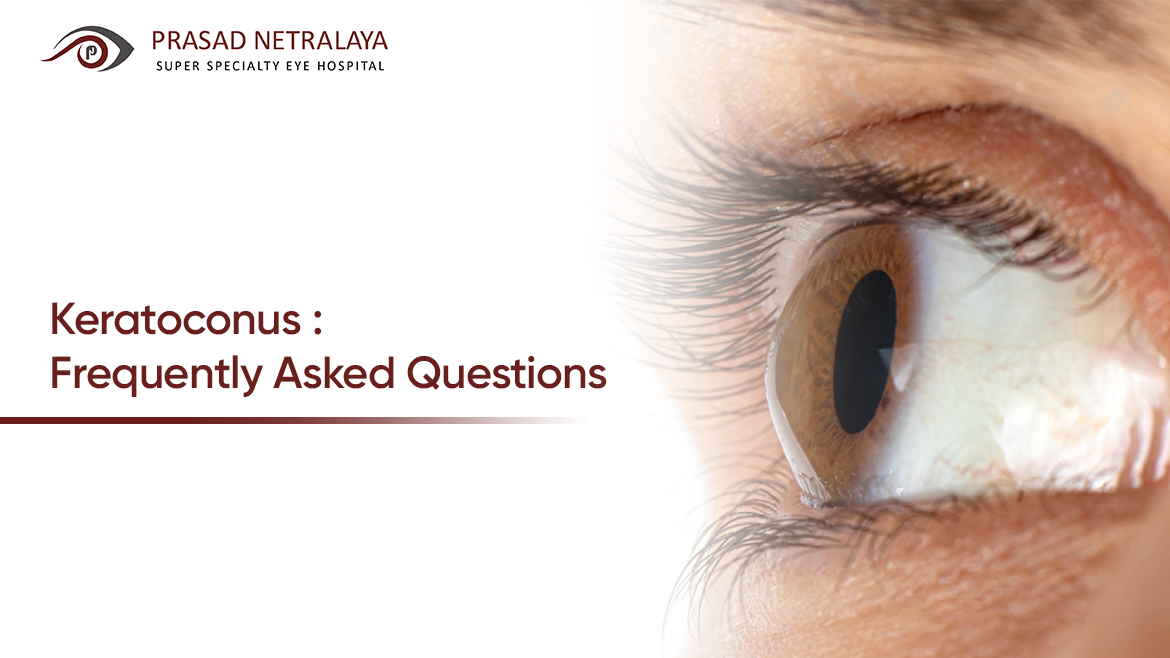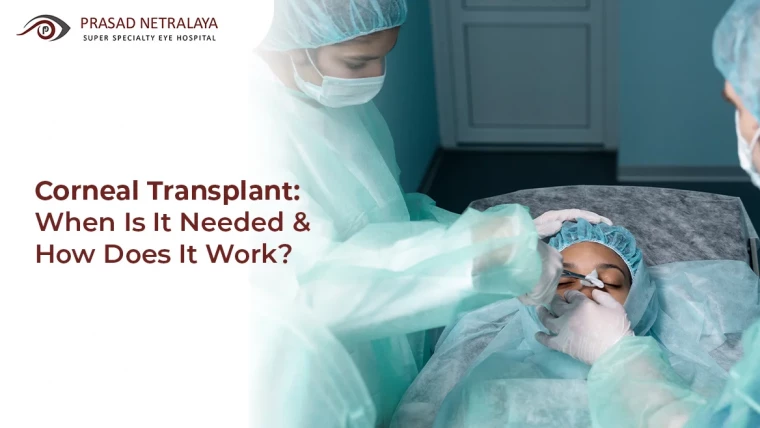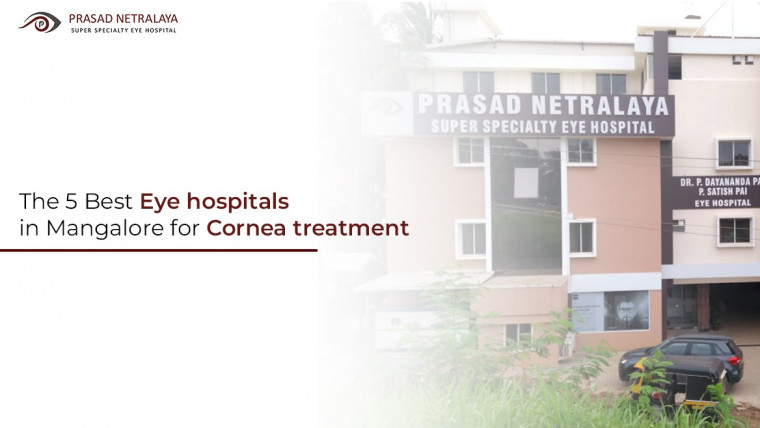Keratoconus is an eye condition that affects about 1 in 2,000 people. Recently, we received many questions regarding this condition, and so we decided to create a series of FAQs to offer some clarity to our patients and readers. We consulted the best eye specialists from one of the top eye hospitals in India, Prasad Netralaya.
We have compiled a list of commonly asked questions about Keratoconus to help parents monitor their children for the early signs of the disorder or to get quality eye care for more advanced conditions.
Table of Contents
1. What Is Keratoconus?
Keratoconus is a progressive eye condition in which the cornea, the clear front surface of the eye, thins and weakens. This causes the cornea to bulge outward in a cone-like shape.
2. What Are the Main Symptoms Of Keratoconus?
Keratoconus patients find themselves needing to change eyeglasses frequently. They are also more sensitive to bright lights and glare, which can force them to stop driving at night. If you suffer from blurred, distorted, or clouded vision, you might want to consult your eye doctor.
3. What Causes Keratoconus?
The true cause of keratoconus is unknown, but a combination of genetics, hormones, and environment is believed to play a major role. Also, people with down syndrome, Ehlers-Danlos syndrome, and Leber’s disease are more likely to develop the condition.
4. What Causes Keratoconus To Get Worse?
Conditions like diabetes and hypertension may increase the risk of keratoconus. Using expired contact lenses or ill-fitting lenses can be contributing factors.
5. Is Age a Factor With Keratoconus?
Yes, age is a factor with keratoconus. Symptoms are usually diagnosed in one’s early 20s, and they get worse until the age of 40. The disorder’s progression usually stops at that point.
6. Will Keratoconus Cause Blindness?
Keratoconus can cause blurred vision, astigmatism, myopia, and, in severe cases, blindness.
7. What Is the Cure for Keratoconus?
There is no cure for keratoconus, but there are treatments that can slow the progression of the condition and improve vision. In some cases, a corneal transplant may be necessary. This procedure replaces a damaged or diseased cornea with a healthy one.
8. When Does Keratoconus Stop Progressing?
In most cases, the disorder starts during the teenage years and progresses over a period of 10 to 20 years. In most cases, keratoconus stops progressing in the mid-30s or early 40s. The condition can, however, progress for longer periods in some cases.
9. What Is the Best Type of Contact Lens for Keratoconus?
During the early stages of keratoconus, eyeglasses and contact lenses may be used to correct vision. As the condition progresses, however, a specialised hard contact lens called a gas-permeable contact lens may be required to improve vision. Scleral contact lenses are also a good option, but your eye doctor will be able to recommend the best type for you.
10. How Much Does Keratoconus Surgery Cost?
Corneal transplant or keratoplasty is a good option, while corneal cross-linking surgery is often used to stop the progress of keratoconus. A corneal transplant cost in India can range from INR 50K to INR 137K per eye. And the average cost of a transplant in India is about ₹93,528.
Also Read : What Is Perfect Vision and How Do You Get It?
Get Quality Keratoconus Treatment From One of the Top Eye Hospitals in India
Prasad Netralaya, one of the leading eye clinics in Mangalore, is well-known for the treatment of the entire range of corneal disorders and infections, including keratoconus.
They offer effective treatment for both types of Keratoplasty — full-thickness penetrating keratoplasty and partial-thickness lamellar.
Their well-equipped contact lens centre specializes in contact lenses for every condition. To learn more about their eyecare services, visit their website.



